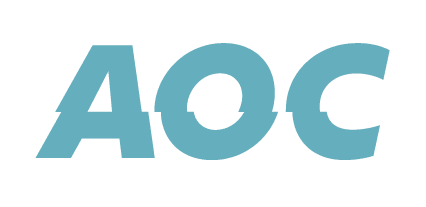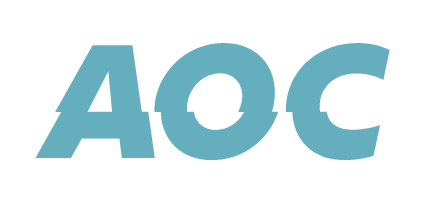It's more than just project management.
When you hear the term agency operations, what comes to mind?
For many it’s seen as a glorified form of project management, a traffic manager ensuring that work gets delivered on time and on budget. The truth is that agency operations is something far more powerful. It’s the glue that holds the entire business together. It shapes how agencies plan, deliver, resource, and grow. And if it’s missing, even the best creative thinking and strategic brilliance can fall apart in execution.
A Role That’s Understood in More Mature Markets
When I worked in the UK, it wasn’t unusual to find Operations Directors sitting at the leadership table of creative agencies. When I joined Southpaw back in 2015, the Operations Director had already been in place for years. It wasn’t a luxury. It was essential, it was the position that glued the whole agency together, working across every department.
But in the UAE, that level of operational leadership is far rarer. In the last month, I’ve spoken to a number of agency leaders, and of those, maybe 10% have someone specifically overseeing operations in a formal capacity and some include it as part of a finance or HR role, but the majority have nobody. That’s not a criticism; it’s a reflection of market maturity. The industry here is younger, many agencies are smaller, and founders often wear multiple hats by necessity.
That said, the absence of a true operations function is a gap that’s starting to show, and it’s being compounded by the rapid pace of growth in the Middle East markets, with agencies only realising they need someone to organise their operations when it's already become an issue.
The Real Scope of Operations
Operations is not about booking in work or cracking the whip on deadlines. It’s about building the infrastructure for sustainable success. That means:
Finance
We're not talking accounting here, but strong operational leadership brings financial clarity. It ensures the agency is tracking margins at project, client and staff levels, highlighting where profitability is being lost, and informing commercial decisions. It also helps teams understand the true cost of time, resource, and scope creep, enabling more confident pricing, forecasting, and planning.
HR and Resource Planning
One of the biggest opportunities that operations leadership brings is the ability to plan. Rather than reacting and overloading an already stretched team, operational structure creates visibility of upcoming resource shortfalls before they become a problem. Giving yourself more time to hire means better hires, and better hires save cost, reduce churn, and improve delivery. It brings structure to positions, giving properly defined growth plans to staff, building your employer brand and in turn attracting and retaining better talent.
Client Servicing
Operations strengthens client relationships by improving internal alignment and reducing delivery friction. When things run smoothly behind the scenes, client-facing teams can shift their focus from firefighting to value-adding. It helps agencies move from being seen as reactive vendors to trusted advisors, improving client retention and positioning.
Project Management
Holding weekly status meetings doesn’t create a strong operations structure. True operational support in project management means forward planning, not just reacting to what’s due today or this week but forecasting what’s coming in the weeks and months ahead. It ensures better allocation of resource, more accurate timelines, and fewer last-minute scrambles. It feeds back into client servicing, allowing account handlers to plan with their clients and creates space for when the inevitable emergencies happen, and you need to react.
Creative
Creative teams thrive when chaos is removed. Operations protects creative time by reducing unnecessary meetings, clarifying briefs, and creating room for iteration. It also means creatives aren’t left chasing missing information or guessing at timelines, they’re free to focus on what they do best. This is multiplied exponentially when you reach delivery phases and have defined approval stages and can drastically reduce the reworking of deliverables.
Leadership
At the leadership level, operations teams provide the intelligence to drive decision-making. That could be data on performance, highlighting inefficiencies, and identifying opportunities for improvement or growth. It helps senior teams shift from reactive tactics to proactive strategy. It also frees up leadership teams to focus on what really matters, looking to the future and enabling agility.
New Business
Operations plays a critical role in aligning new business with delivery capacity and business priorities. It ensures the agency doesn’t just chase revenue, but pursues work that is profitable, sustainable, and aligned with long-term goals. When new business efforts are aligned with the whole business, it’s a key driver for success.
Marketing
Marketing efforts often fall to the bottom of the priority list in a busy agency. Operations creates the systems that allow for consistent self-promotion, aligning marketing efforts with business goals and new business teams, streamlining content production, and ensuring internal teams contribute to the agency’s outward positioning.
Automation & Integration
With more tools in play than ever, a great operational framework ensures your tech stack works together. It identifies opportunities for automation, reduces manual effort, and streamlines workflows, getting your team away from manual spreadsheets and admin so that they can focus on high-value tasks. This is particularly vital for smaller teams trying to do more with less.
Why This Matters Now
Agency life in the UAE is fast-paced, often founder-led, and full of opportunity. But it’s also often chaotic behind the scenes, siloed teams, unclear processes, unpredictable delivery, and inconsistent profitability.
Operations is what brings clarity to the chaos. It brings a level of insight to decision making that was previously done by gut feel. It allows leaders to make smarter decisions, scale without burning out, and create an agency culture that doesn’t just survive, but thrives. And in a competitive market where clients are demanding more value in shorter timelines and with deeper integration, that operational clarity is not a nice-to-have, it’s your edge.
If you want to look at how to give your agency that edge, or you already feel that you're in the middle of the chaos then it could be time to investigate having someone look at the operational side of your business. If you want to look at your options, then book a call below and see how AOC can help your agency operations.

